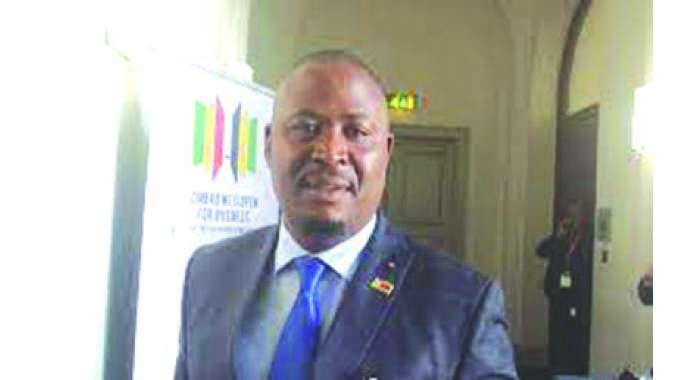Is our education really education?: Minister

Sikhumbuzo Moyo, Senior Reporter
IGNORANCE is more costly to any nation than education hence it is in the interest of nations to pay for education as an uneducated country is very vulnerable in almost every aspect.
Speaking at the 2022 Scholastica Conference at the Zimbabwe Music College alongside the ZITF yesterday, Higher and Tertiary Education, Innovation, Science and Technology Development Minister Amon Murwira said education teaches people logic, which is normally logic to be productive.

Higher and Tertiary Education, Innovation, Science and Technology Development Minister Professor Amon Murwira
The conference is running under the theme: “Economic Development through Promoting Talent and Skills-Based Education.”
Minister Murwira said it was imperative to interrogate the county’s education system because it is based on a colonial design which created employment seekers instead of creators.
“Is our education really education?
How can we make it real education?
If you are at school and you don’t know why you are learning, then our education might not be education,” said Minister Murwira.
“Subsection 1 of Section 13 States that, ‘The State and all institutions and agencies of Government at every level must endeavour to facilitate rapid and equitable development, and in particular must take measures to (a) promote private initiative and self-reliance, (b) foster agricultural, commercial, industrial, technological and scientific development, (c) foster the development of industrial and commercial enterprise in order to empower Zimbabwean Citizens.’

President Mnangagwa
His Excellency the President of the Republic of Zimbabwe, Cde Mnangagwa outlined a vision of an upper-middle-income economy for Zimbabwe by 2030 meaning all the conditions that lead to industrialisation and modernisation have to be fulfilled.
This is our national strategic intent.”
Minister Murwira said the education system has a responsibility to train students to be architects of the world surrounding them.
“Education institutions are necessarily at the centre stage of driving the national vision by providing the necessary capabilities.

Our goal is to develop human capital that is fit for purpose with an ability to transform knowledge into goods and services.
It is a fact that no nation can develop faster than the development of its education system.
Real education by nature must lead to industrialisation and modernisation through the production of goods and services.
We simply must make our education dominate the technology trajectory,” said Minister Murwira.
He said it was puzzling that while Zimbabwe’s literacy rate was among the highest in Africa with average skills level at 38 percent while average literacy was well above 94 percent, industrialisation levels have been low over the years.
“In normal circumstances, skill and literacy levels must be at the same level.
However, in Zimbabwe, we had a scenario where our literacy and industrialisation levels had a negative correlation.
We then conducted a national skills audit to ascertain the levels of skill within different critical knowledge and practice areas as a way to map the way forward. The exercise illustrated important results for planning purposes,” he said.
“While we always wanted our education system to produce industry, the system we followed over the years was not designed to do the same.
We therefore have a duty to design our systems so that they produce goods and services we require through modernisation and industrialisation.
“We could not move forward using wrong or misplaced design, our design of our education was necessary to outline what we desire as an output,” said Minister Murwira.
He said an education system design analysis had been carried out in the country.
“Design analysis results illustrated that our Higher and Technical Education (HTE) was based on three items, 1) Teaching, 2) Research, 3) Community service:- Education 3.0.
This design produced literate graduates who are principally employment seekers as per design. Education 3.0 is a colonial design that served the colonial system perfectly, so although Zimbabwe has a high level of literacy, it was achieved in the Education 3.0 design and this explains the low levels of industrialisation emanating from this design,” said Minister Murwira.








Comments